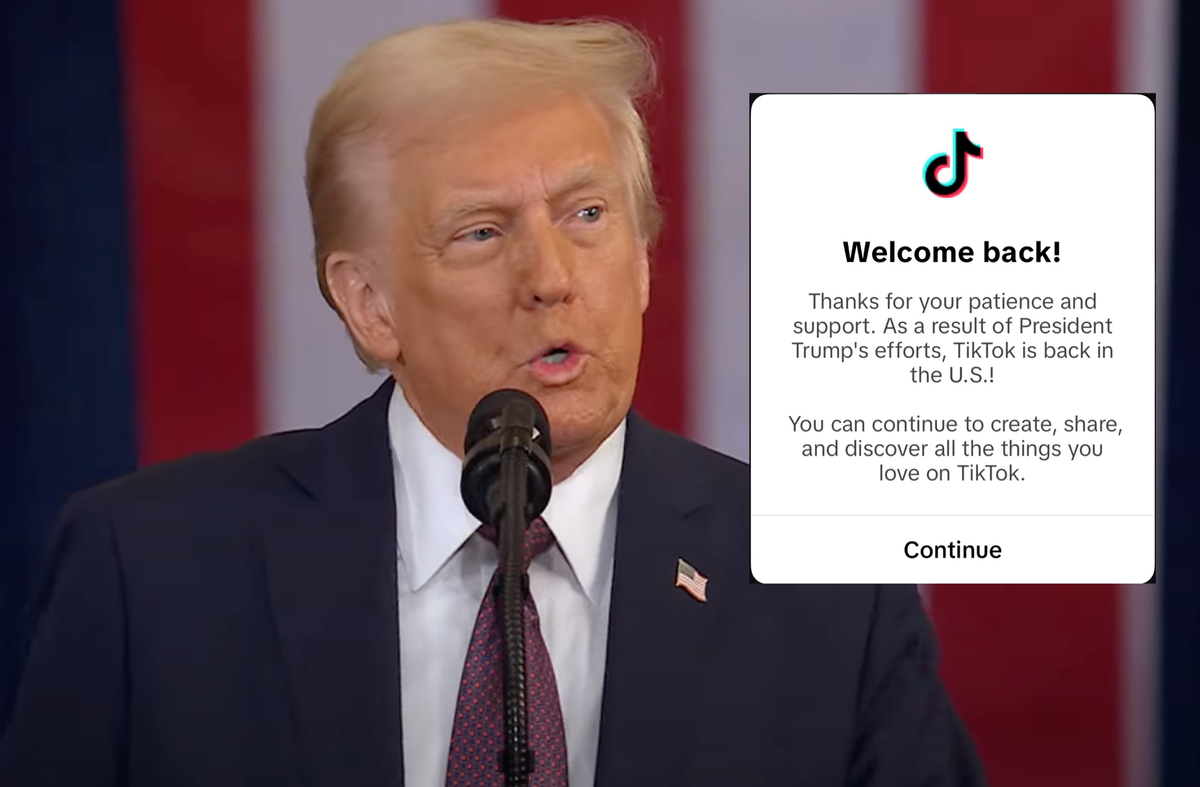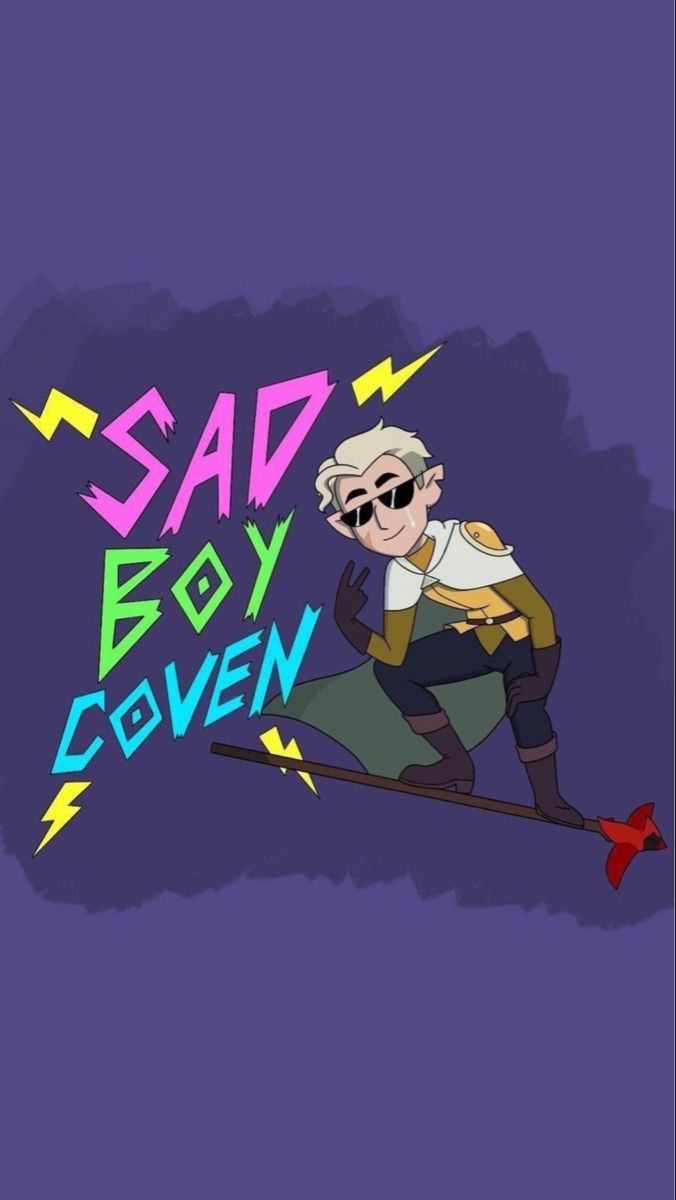deleted by creator
Well it helps, but if you live under an oligarchy they will find ways to stop uncontrolled social media.
You have to address the root of the problem or you will ultimately fail as soon as you get big enough to be a problem.
Decentralized money as well. We need to move away from the control of government and corporations (they are now one and the same). I’m putting more and more of my money in bitcoin. The dollar will continue to erode while wages stay flat. And Trump and his new oligarch buddies will completely decimate the American economy and stock market while they make out like bandits, leaving everyone else the bag holder. Your 401k isn’t safe anymore.
Same but with Monero. I don’t need my friends, neighbors, $5 wrench attackers, and governments knowing how much money I have. And neither should you.
There’s an add-on for Bitcoin called the “Lightning Network” that adds onion routing like Tor.
Yes, but it does not work well. You constantly get failing payments due to inadequate channel liquidity unless you’re using a large centralized wallet provider and using a large centralized wallet provider defeats the purpose of peer to peer digital cash that’s uncensorable.
I’ve been using the Electrum wallet for years now with no issues.
@explodicle @shortwavesurfer as someone that is using it profissionaly, we dont have route for payments more times than I would like to admit…
Electrum or a different wallet?
@explodicle yes, we where using electrum… LN has a routing problem… You neednto open channels with the major players and se of them charge for it
Trust me bro, if your underground stash of money is robbed or stolen because you refuse to trust a bank to safeguard it, it will be considered your fault
My own “we need” list, from a dork who stood up a web server nearly 25 years ago to host weeb crap for friends on IRC:
We need a baseline security architecture recipe people can follow, to cover the huge gap in needs between “I’m running one thing for the general public and I hope it doesn’t get hacked” and “I’m running a hundred things in different VMs and containers and I don’t want to lose everything when just one of them gets hacked.”
(I’m slowly building something like this for mspencer.net but it’s difficult. I’ll happily share what I learn for others to copy, since I have no proprietary interest in it, but I kinda suck at this and someone else succeeding first is far more likely)
We need innovative ways to represent the various ideas, contributions, debates, informative replies, and everything else we share, beyond just free form text with an image. Private communities get drowned in spam and “brain resource exhaustion attacks” without it. Decompose the task of moderation into pieces that can be divided up and audited, where right now they’re all very top down.
Distributed identity management (original 90s PGP web of trust type stuff) can allow moderating users without mass-judging entire instances or network services. Users have keys and sign stuff, and those cryptographic signatures can be used to prove “you said you would honor rule X, but you broke that rule here, as attested to by these signing users.” So people or communities that care about rule X know to maybe not trust that user to follow that rule.
I think the key is building a social information system based on connections we have in real life. Key exchange parties, etc
It’s the only way to introduce a prohibitively high cost to centralized broadcast and reduce the power of these mega-entities
Could you clarify? A sneaker net? Peer to peer?
I think the good news is, regardless of what gets done, people are hungry for real connections and the old internet.
check out https://sandstorm.org/ , the project is pretty dead but they had the right idea
honestly, i’ll donate money to whomever can design this and make it scalable.
Yea agreed, but not Lemmy or Mastodon. Or, really anything with ActivityPub as these places are an echo chamber filled with trigger happy jannies who will ban you from a community if you have a differing of opinion to their groupthink.
i dont disagree implicitly with activitypub being echo chamber prone but its interesting that your most recent replies are litigating the veracity of a nazi salute caught on national television
Well, as a Jew, I haven’t seen anything else from Elon that’s emblematic of being a Nazi. Sure, he has some right wing beliefs, but those were pretty centrist ideals prior to the past decade. And I have encountered real neo-Nazis who have wished death upon my [k expletive] ass and attempted doxing. I think Elon is just an awkward person in general, but I’m not buying into the stats quo hype that he’s some neo-fascist, Hitler sympathizer. That’s just my opinion. You’re welcome to believe what you want too 👍
Are you suggesting that we shouldn’t be worried about toxically insecure people in power when they are behaving awkwardly? Does an appearance of awkwardness grant automatic innocence?
I have been be intensely awkward with my insecurity in the past, and in my awkwardness i have definitely hurt people. If the victims of my insecurity brushed me off as awkward they would be enabling me to continue to harm others
He made Twitter into a Nazi bar. This too. There’s plenty more that you can certainly find yourself if you actually look.
Every person that has ever made a post like this has multiple comments defending Nazis.
Good thing I’m not defending any neo-Nazis
Sorry, I don’t carry on conversations with Nazi sympathizers. I hope you have an awful day.
I’m Jewish so it’s not possible. But cool story bro.
deleted by creator
How is Lemmy (or whatever) ever gonna scale up to the size of Reddit though? If they can’t deal with trolls and bots and spam then what the hell are we gonna do?
What do you do in real life? You tell them to fuck off.
on reddit majority of heavy lifting is done by community mods. hosting, however, is a pain, lemmy is centralized as fuck.
deleted by creator
Distributed (and zero configuration needed), but with centralized development. Federated is not good enough - separate instances may lag behind in versions, or their admins do something wrong, and user identities and posts are tied to them.
Ideally when an instance goes down, all its posts and comments and users are replicated in the network and possible to get.
A distributed Usenet with rich text, hyperlinks, file attachments, cryptographic identities, pluggable naming\spam-checking\hatespeech-checking services (themselves part of that system).
It was a good system for its time, first large global thing for asynchronous electronic communication.
OK, if you are, you don’t pretend, and if you pretend, you aren’t. And if you talk about someone somewhere probably designing something, then you are not making that something closer. I’m tired of typing things in the interwebs people either already know and agree with, or won’t take seriously.
I’m thinking of starting a friendica node for my city. I feel that a big problem with federated apps is that the audience isn’t local enough; it’s usually mostly tech-oriented people and doesn’t have enough local services.
Guns are the only alternative to the tech oligarchy.
You think they can’t buy, manipulate, or just crush decentralized social media? If anything they can do it easily, divide and conquer. FOSS ain’t gonna free you, esp. when the largest contributors to FOSS projects are big corps.
That’s absurd. Large sharp dropped blades, poison, starvation, spears, looped ropes, fire… There are many alternatives available.
We could make a wiki filled with all the options.
But let’s prioritize the non-violent ones first.
Oh, absolutely. With quicklinks to any old category the user may want to get to fast.
We did prioritize non-violent ones, and this is where it got us. The ONLY option is violence.
I’m just talking about how we design the wiki. Gotta be tasteful and present ourselves in the best light.
That’s fair, it’s important in some ways to conceal the hand a bit. We have to make to make the rich as uncomfortable as we are though.
Republican solutions to republican problems eh?
The only solution guns provide are dead people. You have fallen for the pathetic lie of the right.
Oh. Guns are even better for that.
On the right? They are a lightning rod for criticism and complaints. “All the jobs in our state were taken away and my daughter is dying of an easily curable disease. BUT THOSE FUCKING LIBERALS ARE TRYING TO TAKE AWAY MY SECOND AMENDMENT RIGHTS!!!”
On the left? they are a way to “meet in the middle” on a lot of legislature while also being a great way to villify and target groups. For example, anyone with even a passing understanding of history knows that the Civl Rights Movement was not MLK Jr giving one speech and fist bumping Rosa Parks on the bus. The threat of violence was definitely a factor (beyond that it gets murkier). And people LOVE to argue that Blacks picking up guns is how that was “won”.
You know what else came of that? “That kid is a gangbanger and has a gun. SHOOT HIM. Oh shit, uhm. Fuck it, we’ll just say the toy train looked like a gun”.
And we’ll see that continue. LGBTQ folk will decide they need a gun and you can bet the cops and the chuds will be glad to open fire at protestors because “THEY HAVE A GUN!!!”
And the absolute best part? “Both sides” are fucking delusional if they think their guns are going to accomplish anything against an oppressive government. Cops won’t go near a pistol if a kid’s life is on the line. But they’ll open fire like mel gibson if they think a business is in trouble. Let alone the military with tanks and drones and there will be a lot more “combat footage” to watch online.
If there was ANY chance that The 2nd Amendment could pose ANY threat to a tyrannical government, it would have been destroyed decades ago.
Somebody almost killed Trump in July. A couple of inches was the difference between a Republican party in chaos just before the election and a party united behind their fascist hamberdler. The way this is going the 2A is going to be your only real defense against modern Nazism so you’d be better off hitting the range and getting proficient with a firearm than you are posting pics with #resist on Instagram.
In many ways, trump’s campaign was bolstered by the image of him standing “defiant” with a fist raised in the air and someone else’s blood all over him.
If trump HAD gotten got? Evil deep state assassination attempt by biden and here is your new candidate that the entire party would rally behind. And democrats would be even more reluctant to say or do anything out of “decorum”.
Because here is the thing: trump isn’t even the problem. He is an evil bastard but he is a symptom of the problem. Project 2025 is what those rapid fire EOs come from. And Project 2025 very much benefits from right wing fascists controlling basically all of social media.
And I will just, once again, ask: What do you think your guns are going to do against a military that is cracking down on you and your buddies as “terrorists”? Because if there was ANY chance of a civilian force posing ANY threat to a government, we would have banned guns back in the late 1700s.
You’re making a lot of unfounded assumptions about what would have happened if Trump were assassinated. No one else has been able to harness MAGA energy the way he has. It’s entirely possible the movement would splinter without its figurehead. We won’t know that until he’s gone. Although it seems less likely now that he presumably has 4 years to enact policy changes and put people in place to keep his agenda moving after his term is up.
There’s plenty of debate to be had on the topic of the effectiveness of guns in civil resistance. All of which can be found in more detail elsewhere than we’re going to be able to cover here. However, suffice it to say that your understanding of resistance in general and guerilla tactics specifically is severely lacking if you’re assuming that this situation would play out as an open confrontation between the US military and some sort of militia. Despite the fact that such a conflict would provide more room for maneuvering than you are giving it credit, that would not be the preferred method of engagement. Generals and other senior officers have to buy groceries and go to the DMV just like everyone else. You pick your targets when and where you can get them. More than anything else, it’s important to acknowledge that in the situation where it becomes necessary to think about these kinds of things in more detail, my guns afford me many more options than your knives (or whatever else you prefer to rely on) would. Unless, of course, you plan on giving up without a fight, in which case we clearly have such different outlooks that additional discussion will not help us find common ground.
Yeah…
Your mass assassinations plan doesn’t work when there is a camera on every corner and traffic light. L Dog was always going to get caught if he hadn’t fled the country within hours of blapping that exec. You are also apparently assuming everyone is Jason Bourne in your fantasy and are a highly trained guerilla fighting force that can blend in and out of everything.
You pick your targets when and where you can get them.
Yeah. The difference between being the chosen one in a young adult novel and actually accomplishing anything of value is what taking out your “target” accomplishes.
And… a great example of that is Palestine. For the sake of simplicity, let’s call what Hamas did “attacking a target”. What was the outcome of that? Israel had “justification” to engage in mass ethnic cleansing for over a year.
Unless, of course, you plan on giving up without a fight, in which case we clearly have such different outlooks that additional discussion will not help us find common ground.
I believe in fighting for change in ways that can actually protect others and accomplish things. Rather than fantasizing about living in a Call of Duty commercial and just painting an even bigger target on the backs of the groups I claim to be helping.
If you or the other “Buy a gun, it is the only thing you can do. I hear Fred’s on 4th street have great deals on assault rifles!” folk had ACTUALLY engaged in any activism whether peaceful or otherwise you would have long since had it explained to you: YOU DO NOT BRING A FUCKING GUN TO A PROTEST. Because the moment the other side sees it? They open fire. Because cops will give a bottle of water to the white kid with an assault rifle looking for some n*****s to kill. They’ll fucking murder anyone who looks even slightly brown if they have a bulge in their jacket pocket.
And… a great example of that is Palestine. For the sake of simplicity, let’s call what Hamas did “attacking a target”. What was the outcome of that? Israel had “justification” to engage in mass ethnic cleansing for over a year.
You put justification in quotes here, and I think you clearly understand why. Netenyanhu propped up hamas as the de facto government specifically in order to ensure a more militant party would give israel the necessary “justification” to attack the people there. So, even their governance, and that attack itself, is traceable to israel’s state violence. A minor note, but an important one, I think. And I think one which requires more thought than just like, pointing to that and then saying “See, I told you, violence doesn’t work, and is bad, and israel wants it!”, because israel’s obviously not an overly rational state which is actually functional, either for it’s people or for it’s goals.
More broadly though, it’s not necessary at all for people to have guns, in order for cops to kill them. Cops can invent any number of reasons to kill someone in their day to day. The gun is something you just see in the news media a lot because it’s incredibly common in america, and especially common in the hoods where cops go out and kill people in larger numbers. Again, we can see that as an extension of a context, created by the state, which has naturally created violence. Partially through the valuable, and illegal, property, mostly in the form of drugs, which must be protected through extralegal means, i.e. cartels and gangs, but also just naturally as a result of police violence in those places as an extension of that, which is an intentional decision to create by the ruling class. It’s a way to create CIA black budgets, it’s a way to incarcerate and vilify your political opponents at higher rates, etc. You can’t be intolerant to the idea of guns as a blanket case, in that context, because it’s a totally different kind of context, and is one which is created by the state.
I would maybe also make the point that a protest is incentive enough against killing people, because it would be widely known and televised as a massacre in the media. You know, just gunning people down in the street, en masse. That line is sort of, becoming less clear over time, as the government seems to be more and more willing to condone that, if not outright do that, but I don’t really think that if, say, everyone in the BLM riots was armed, the cops would just start randomly firing into the crowd. They’d be hopelessly outnumbered, for one, so that’s a pretty clear reason for the police not to just start sputtering off rounds like a bunch of idiots, but you’d also probably see a protracted national guard response over the course of the next several weeks, which nobody really wants to deal with, both in terms of the media response and just the basic type of shit that would happen.
You also have several extrapolations you can make from just that happening in the first place, even though it never would. Like, the kind of city which could get up to that, in america, would maybe reveal something incredibly uncomfortable to the ruling institutions about that particular city and its political disposition and potentially that could be extrapolated to the entire country. Most places don’t get to that point because they reach civil war before that, which is kind of more along the lines of what the preceding commenter is talking about. More along the lines of, say, IRA tactics.
Which is all to say, that this is something which is shaped entirely by the government’s intentional responses and the contexts that they create. When they decide to escalate, that should be seen, naturally, as being on them, and not on your average person. I think what the previous commenter is trying to say, with a good faith reading, is that we are probably due, in the next 4 years and perhaps beyond, for an escalation. I don’t think that’s really a morally great thing, or a good context, but I do think they’re potentially right based on how things shake out, and I think that people should probably come to terms with that even as we try to avoid it.
Edit: Also I forgot to note this, but this isn’t really a disagreement in core ideals, but just of tactics. Dual power isn’t so much a deliberate choice of tactic so much as it should just be a certainty, being that both sides of this debate are mutually beneficial to one another. If you have, or can place, a more reasonable politician in office, either through violence (highly unusual, but does happen occasionally if the dice reroll lands well enough), or through the political system itself, then that reasonable politician is just that, more reasonable. i.e. more likely to accomplish goals which are desirable to any violent guerillas. Likewise, the pressure that violent guerillas exert can be seen as a kind of abstract economic cost constantly being leveraged against unreasonable political powers, in favor of reasonable elements of that political system.
The main point against this, is that the united states is currently so unreasonable, politically, that it’s functionally impossible to bargain with in really any way. Any violence, under such a political system, one which refuses any attempt at change, is seen as kind of ultimately meaningless. But I think that’s maybe also part of a broader point about how people just generally feel, understandably, incredibly pessimistic about the future, and are sort of retreating back into a kind of survival mode. Especially, I think, because they’ve been made to feel totally responsible for the weight of the world, when ultimately the decision of the political power to retaliate and do mass violence is, as previously stated, both inevitable, and entirely their own decision, that they must be held responsible for, rather than the people.
And we’ll see that continue. LGBTQ folk will decide they need a gun and you can bet the cops and the chuds will be glad to open fire at protestors because “THEY HAVE A GUN!!!”
Exactly, the presence of a weapon just gives them a reason to pull the “THEY’RE COMIN RIGHT FOR US” bullshit from South Park Season Fucking One.
Guns work better when you can coordinate Resistance movements news to be coordinated. Running out with a gun like a mad man isn’t going to work.
so we just all buy guns and fend for ourselves? we need communities in order to fight fascism, we need to be able to organize and share valuable information with people. is technology the answer to the problem? no its not, but it is part of the answer, and to ignore that is shortsighted.
As to an answers beyond simply getting-armed-and-fostering-healthy-gun-culture-and-education-among-us:
“Practicing mutual aid is the surest means for giving each other and to all the greatest safety, the best guarantee of existence and progress, bodily, intellectually and morally.”
That’s Kropotkin
And then Modern Libs even observe, more verbosely:
“The structures of our state economies are going to matter in terms of protecting democracies, and by that I mean if you look at economies that were based in the kind of small producer economies like New England was vs states like the South and the American West that were always built on the idea of very high capital using extractive methods to get resources out of the land either cotton or mining or oil or water or agri business, those economies always depend on a few people with a lot of money, and then a whole bunch of people who are poor and doing the work for those Rich guys – and that I’m not sure is compatible in terms of governance without addressing the reality that you know if people have more of a foothold in their own communities, they are then more likely to support the kinds of legislation that Community [Education, Healthcare, …] and that may be the future of democracy, if not a national democracy”
Heather Cox Richardson, professor of American history On The Weekly Show with Jon Stewart on Trump’s Win and What’s Next https://youtu.be/D7cKOaBdFWo?t=2139 (time-stamped)
If a Conservative wants me dead, they’re going to have to work and sweat for it. I’m not doing the heavy lifting for them (A Quote I agree with)
Our resulting interactions may seem chaotic and illegible to authority, but it is through that seeming chaos that vastly complex, horizontal, and resilient practices of learning, cooperation, and reciprocity have historically arisen.
By Andrewism https://youtu.be/qkN_nQPpeSU
MASKING REALLY HELPS; Covid, RSV, Flu is a greater threat to marginalized communities. Can’t do organizing without prioritizing precautions.
Show up for your neighbors. The rest will come.
2a is there in case 1a don’t work

From the article:
literally
Look; if you’re a journalist, pretend you know other words. I’m so fucking done.
Elon Musk, who had already turned X into a cesspool of hate and an overt tool to get President Trump elected, is now formally part of the Trump administration, meaning the platform is literally owned by a member of the Trump White House.
The word is literally being used correctly.
Weird flex here…
404 at least does some investigative journalism beyond fake news headlines where person a “slams” person b
All we need is people at this point. Still way too many people on Reddit and they’ve gone downhill significantly since the push for monetization
I am so happy I have an account on here, even if some people can be quite abrasive
Without the paywall: https://archive.is/TJzyt

















